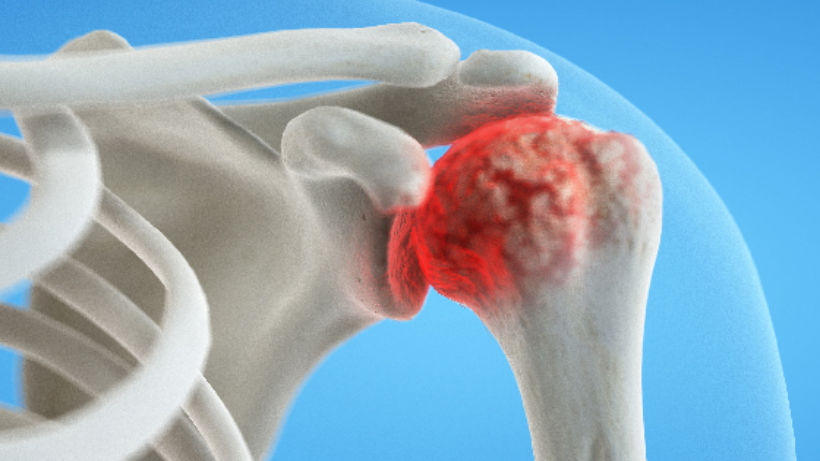Can You Treat Osteomyelitis or Bone Infection?

Overview
Do you know that our bones function as the framework of our body? And can protect internal organs from getting impact damage? Like other body parts, our bones can also get infected. However, if we don’t take proper care of them, these can turn into life-threatening conditions too! In this blog, we will discuss a few facts on bone infection treatment with one of our best bone infection specialists in India. To know more, keep reading!
Book free consulting session with HealthTrip expert
What is osteomyelitis?
Osteomyelitis is a bacterial or fungal infection of the bones.
It causes swelling of bone marrow. Swelling from a bone infection can block off blood supply to your bone, causing it to die if left untreated. Bone infections can also happen in the bone itself if the bone is exposed to bacteria as a result of an injury.
Also, read - Types of Bone Fractures and Their Differences
What are the symptoms of osteomyelitis?
Your doctor may suspect having an osteomyelitis infection if he/she has noticed a few symptoms including-
- Fever
- Irritation
- Fatigue
- Warmth and redness around the area
- Swelling and tenderness in the affected area.
- Pain, discomfort
- Reduced mobility or range of motion
Also, read - BMT Cost in India
When should you seek medical treatment for osteomyelitis or bone infection?
As suggested by the eminent bone infection doctor in India, if you have worsening bone pain and fever, see your doctor. If you're at risk of infection due to a medical condition, surgery, or accident, visit your doctor as soon as possible if you observe signs and symptoms of infection.
What are the treatment options available for osteomyelitis?
Your doctor may recommend a single or combination of various treatment options for osteomyelitis. This includes-
- Antibiotics to reduce bacterial infection of the bone. The duration of antibiotic therapy may depend on the severity of the infection. Chronic infections may require therapy for a longer duration. Some doctors recommended antibiotics for treating chronic infections like- vancomycin, cephalosporin, and beta-lactam inhibitors.
- Drainage- your surgeon may need to drain any pus or liquid surrounding the affected area.
- Aspiration- with the help of a fine needle, your doctor may drain the pus.
- Other than antibiotics, you need to take anti-fungal and painkiller medicines. Do not take any medication on your own.
- Blood flow restoration for the infected bones( if necessary)
- Surgery- to remove the damaged, necrosed bone. He/she may need to remove the plates, screws, or any prosthesis if the bone is infected.
Though sometimes surgery may lead to bony deformities.
- Spine surgery- if the spine has an infection, can be treated with spine surgery. Early intervention can prevent your vertebrae from collapsing.
- Hyperbaric oxygen therapy- Your doctor may also recommend hyperbaric oxygen therapy in severe cases to improve the overall healing of bone.
- In some cases, your surgeon will plan for revascularization therapy, if you have any peripheral vascular disease(PVD), diabetes, malnutrition, chronic hypoxia, or other health condition that may impede the healing process after treatment.
- Avoid smoking for faster recovery.
Also, read - Bone Marrow Transplant Cost in India
How do you prevent osteomyelitis?
It can take a long time for a bone infection to heal. If you begin therapy within three to five days after first seeing symptoms, the infection may cure up faster.
- Keeping things clean is the greatest approach to avoiding osteomyelitis. If you or your child suffers a cut, especially one that is deep, clean it thoroughly.
- Any open wound should be thoroughly cleaned for five minutes under running water before applying sterile bandages.
- Make sure your doctor is aware of your medical history if you have chronic osteomyelitis.
- If you have diabetes, keep a close eye on your feet and call your doctor if you notice any signs of infection.
Why should you consider getting bone infection treatment in India?
India is the most favored place for orthopedic treatment operations for three major reasons. And if you are searching for a bone infection hospital in India, we will help you to find the same.
- India's cutting-edge technology,
- medical skills, and
- Bone infection treatment costs in India are among the best in the world, as our patients need affordable and quality health care.
How can we help in the treatment?
If you are searching for a bone marrow transplant in India, we will serve as your guide throughout your treatment and will be physically present with you even before your treatment begins. The following will be provided to you:
- Opinions of expert physicians and surgeons
- Transparent communication
- Coordinated care
- Prior appointment with specialists
- Assistance in hospital formalities
- 24*7 availability
- Arrangement for travel
- Assistance for accommodation and healthy recovery
- Assistance in emergencies
We are dedicated to offering the highest quality health care to our patients. We have a team of highly qualified and devoted health professionals that will be by your side from the beginning of your journey.
Conclusion-By simply packing their medical journey to India, bone infection treatment can substantially benefit the patient with their orthopedic-related therapies. We also offer a comprehensive range of physiotherapy and surgical therapies to international patients during their post-discharge recuperation vacations.



